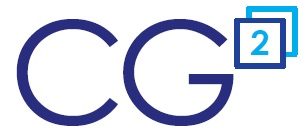Does CPG company size affect the RFP requirements for a TPM solution?
You might think that CPG companies that sell through the same retail channels would have the same TPM solution requirements regardless of their company size.
As it turns out, size does affect the requirements of TPM solution. Here are some of my observations over the past 30+ years based on hundreds of CPG company’s TPM solution RFIs and RFPs.
Some simple definitions:
TPM: Acronym for Trade Promotion Management, which often refers to both the software solution and the overall workflow, business rules, etc.
RFI: Acronym for Request for Information.
RFP: Acronym for Request for Proposal.
Small company Advantages:
- More flexible on requirements: Many smaller companies are able to compete with the large CPG companies by being more flexible and quicker to change than their larger competition. This often permeates the company culture, resulting in flexibility on requirements, workflow, etc. Rather than forcing customization in the TPM solution to adapt to the company's existing TPM business practices, smaller companies can be more agreeable to adjusting their practices to adapt to industry best-practices and/or the TPM solution's limitations.
- Manual work-arounds are possible for smaller companies that are not practical for high volume large companies. Example: An approach for planning promotions that works for 100 items may not be practical if your company has 2,000 items.
- Faster decisions on the RFI / RFP: Smaller companies often have fewer people involved in the RFI / RFP process, and it is typically a less formalized process. This can help the team make a decision and move forward in less time.
Small company Disadvantages
- More risk if a key person leaves. In a smaller company, the departure of a key person can leave a void that changes the TPM vision change and/or a loss of key technical knowledge. Smaller companies may have less documentation in place to help with training the replacement.
- Limited time to get value from TPM solutions. Smaller companies may not have the financial resources to weather challenges of an extended TPM implementation. Stand-alone third-party TPM solutions can be expensive to implement, and can take time to recover the financial investment.
- 3rd party data too expensive. For small brands, third party data can be too expense. In addition. If data is purchased, the team may not have enough time to get value from data purchase. Integration of 3rd party data may not be ranked high on the RFI / RFP TPM requirements.
- Too small to get fair share of broker resources. For this reason, brokers may not be given access to the TPM solution. The RFP may not have broker access as a requirement.
For more insights on how CPG company size influences the technology of TPM RFIs and RFPs, go to our www.i-TPM.com TPM blog.
Thank you for reading our TPM blog.
Alex Ring
CG Squared, Inc.
